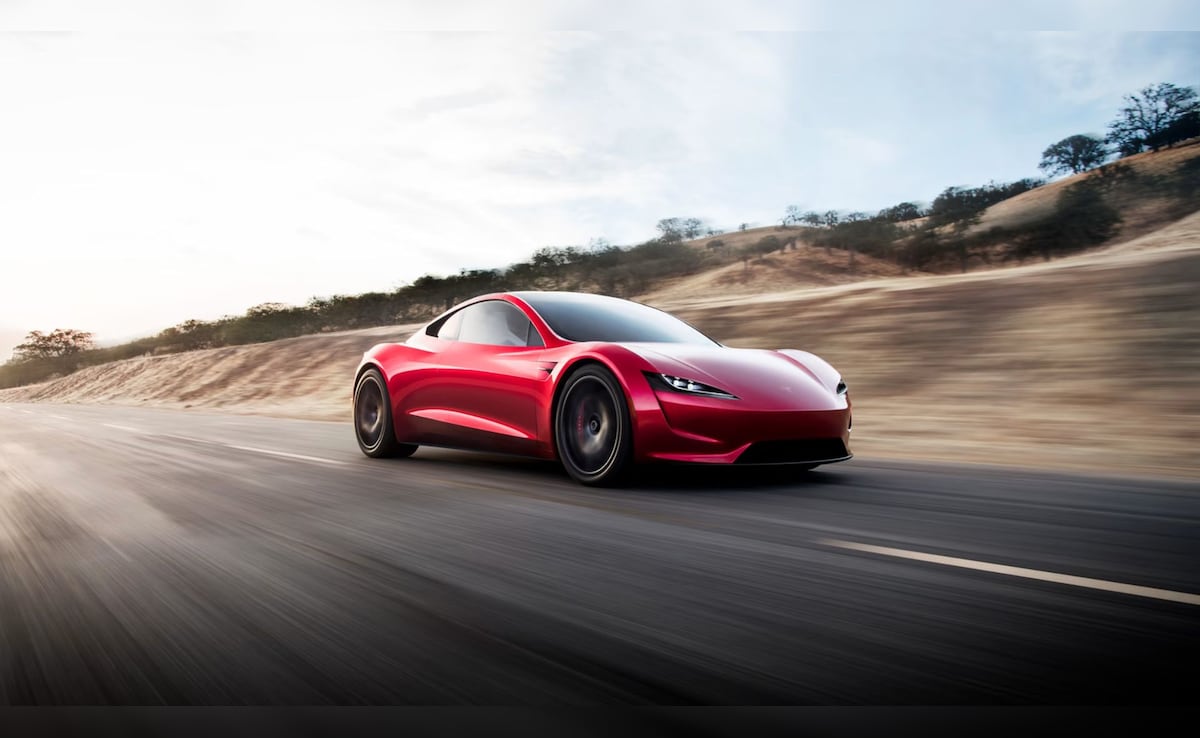Donald Trump has announced new tariffs which he is slapping on countries around the world on what he declared as "Liberation Day".
The president said at the White House that there would be a 10% baseline tax on imports from all nations and higher rates on goods from dozens of countries that run trade surpluses with the US.
Mr Trump held up a chart in the Rose Garden, showing the US would charge a 34% tax on imports from China, a 20% tax on imports from the EU, 25% on South Korea, 24% on Japan, and 32% on Taiwan.
The UK seemed to get off more tightly, with a 10% tariff.
Latest updates on Trump tariffs

So what do Sky's correspondents think of the president's tariff announcement?
:: David Blevins, Sky correspondent, in Washington DC
Donald Trump has left little ground for negotiation.
By declaring a national emergency due to national security and economic concerns arising from the trade deficit, the president has given himself the power to regulate imports.
He is regulating them by imposing a 10% baseline tariff on all countries exporting goods to the United States, and country-specific tariffs on the 60 "worst offenders".
The UK has escaped that worst offenders list with a 10% tariff, but the EU has not - a tax of 20% now imposed on its products.
But Trump stressed that those specific reciprocal tariffs are half what those "worst offending" countries charge the United States.

The combination of declaring a national emergency and framing the president as "lenient" and "kind" limits the ability of those on the receiving end to negotiate.
One senior White House source said: "This is not a negotiation. It's a national emergency.
"And any country that thinks that they can simply make an announcement promising to lower some tariffs is ignoring the big, central problem of their massive non-tariff barriers and the institutionalisation in their trade model."

:: Dan Whitehead, Sky correspondent, in Ontario, Canada
For Canada - this is all about cars.
Confirmation from President Trump that from Thursday, vehicles imported into the US will, as feared, be subject to a 25% tariff.
It is a bitter blow to the car makers - mainly in Ontario - but such is the integration of the auto industry in North America that it is bad news too for the industry in the US.
"He will single-handedly shut down the American auto industry," claims Flavio Volpe, head of Canada's Automotive Parts Manufacturers Association.
He told Sky News this tariff will lead to mass job losses among the 500,000 car workers in Canada within "one week".
More than a million vehicles are exported from Canada to the US each year - an industry worth tens of billions of dollars.
Even though there's not yet a specific tariff on auto parts, companies in Canada are already cutting staff and losing business; fewer car orders, fewer parts needed.
Canada may not have been on the billboard of highest tariff countries, but they are left in limbo that things could get worse if it doesn't address what Trump sees as a "massive" amount of fentanyl coming across the border.
Such is the turmoil between Canada and the US, that the new Canadian Prime Minister Mark Carney called a snap election for 28 April.
The US-Canada relationship is "no longer" reliable, he says - just how these North American neighbours fix it will be front and centre when Canadians head to the polls.
Please use Chrome browser for a more accessible video player
:: Adam Parsons, Europe correspondent, in Brussels
There will be a response from the European Union - the question is how soon, and how tough.
A symbolic reprisal is one choice - putting tariffs on classic American products such as Harley-Davidson motorbikes or bottles of bourbon. That won't damage the European economy, but it won't make much of a difference, either.
There's a reluctance to slap wide-ranging, indiscriminate tariffs simply because that would increase costs for many European manufacturers. So something more targeted may look appealing and that could mean going after the tech giants - Facebook, Apple, Google, Amazon, for example.
Companies who have already had rows with EU regulators and are seen as being, to varying extents, close to the White House. If Europe could specifically target Tesla, it probably would.
There are also those suggesting the EU should hold fire for the moment, confident that Trump's tariffs will backfire and keen that the effects are visible.
One fear is that some of the cheap goods that were destined for US markets will now be diverted to Europe, flooding its market. Another fear is how the Windsor Framework will be affected, now that there are different US tariffs on either side of the Irish border.
And finally there is that insult from the president, who called the European Union "pathetic". A few minutes later, a senior EU diplomat sent me a message saying "the US is Brexiting the world, but you can't stop the march of folly".
Transatlantic relations are getting even icier.

 22 hours ago
7
22 hours ago
7











 English (US) ·
English (US) ·